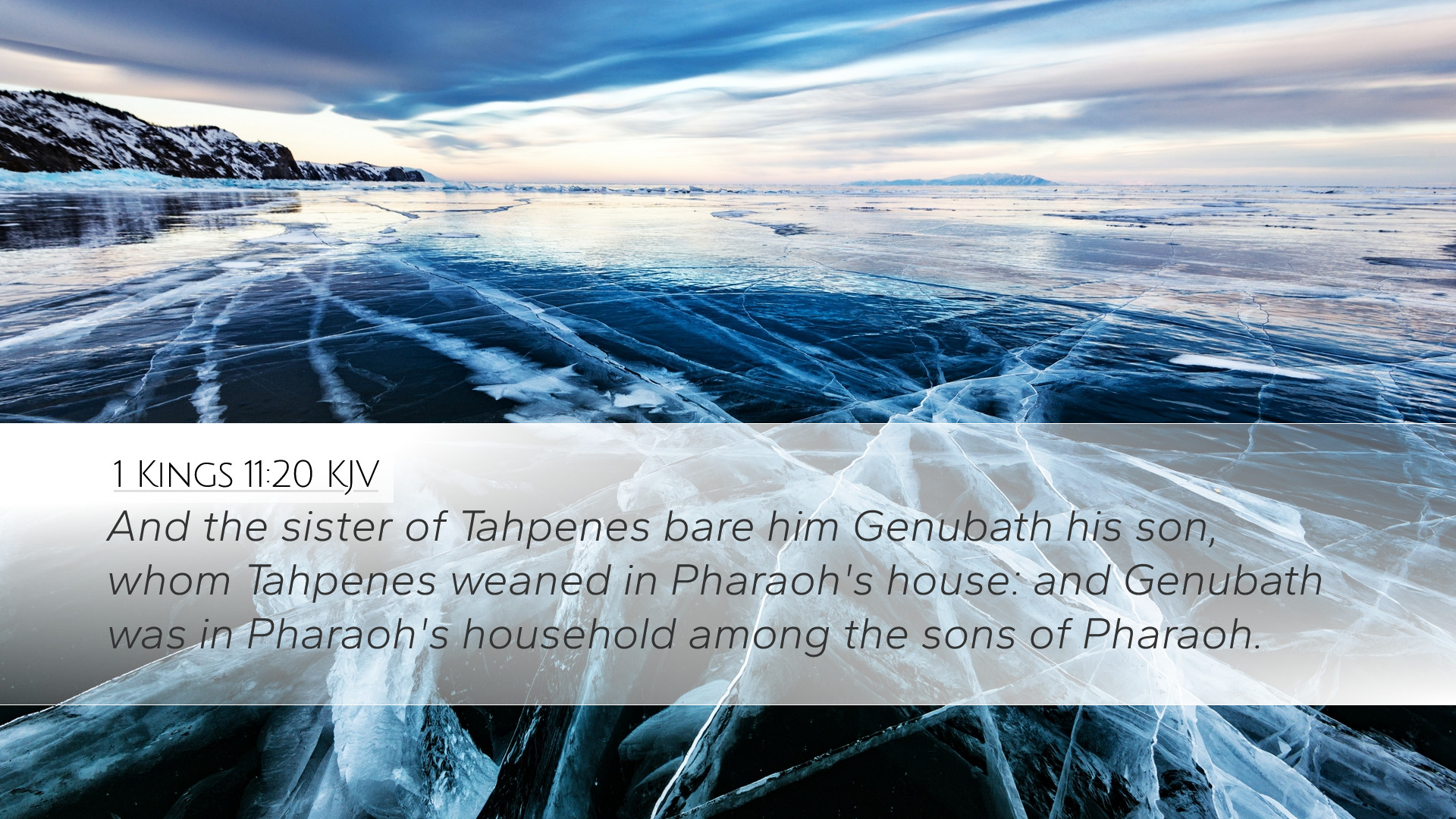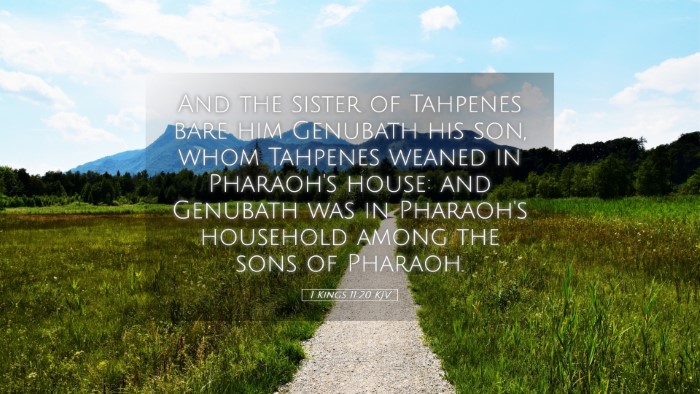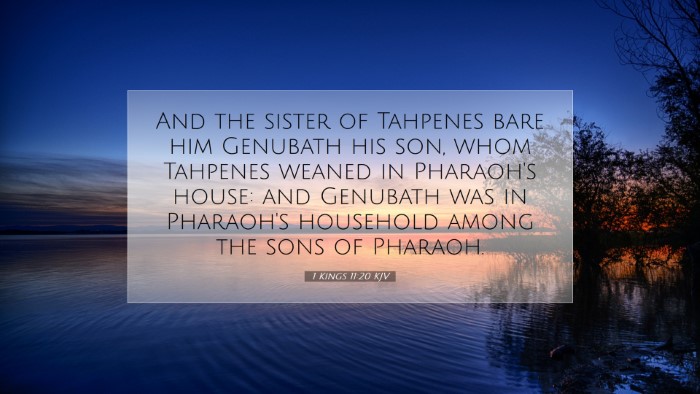Commentary on 1 Kings 11:20
Verse: "And they were his (Solomon's) servants; and they came to him in the harvest season, and they brought him gifts from the nation of Israel." (1 Kings 11:20)
Contextual Background
The passage in 1 Kings 11 presents a critical moment in the history of Israel, marking significant transitions in leadership and divine judgment. Solomon, renowned for his wisdom and wealth, begins to show signs of moral and spiritual decline, leading to the eventual division of the kingdom. The interactions described in this specific verse provide insight into Solomon's relationships with his subjects and highlight the socio-political dynamics of his reign.
Solomon's Decline
As noted by Matthew Henry, the decline of Solomon can be mapped through his indulgence in foreign alliances and polytheism. He turned away from the covenant fidelity established with the God of Israel. This turning away is pivotal as it shows how God’s favor was gradually receding from him, as he began to engage in alliances through marriage with foreign princesses, which in turn led to idolatry.
Key Insights from Public Domain Commentaries
Albert Barnes's Commentary
Albert Barnes emphasizes that the servants mentioned in 1 Kings 11:20 were not merely individuals but representatives of the larger body politic of Israel, indicating how Solomon’s governance was perceived during this tumultuous time. Solomon's lavish lifestyle is paired with an increasing burden on the people through taxation and forced labor. The gifts brought to him can signify both a tribute and an acknowledgment of his sovereignty, reflecting the complexity of loyalties during his reign.
Adam Clarke's Contribution
Adam Clarke remarks on the significance of the ‘harvest season’ mentioned in the verse. This period represented a time of prosperity and gathered resources, but also served as a reminder of the ecological and economic burdens placed upon the populace due to Solomon’s construction projects and extravagant lifestyle. Clarke elucidates that on one hand, the gifts reflect prosperity, while on the other, they illustrate the cost to the people’s wellbeing and their growing dissatisfaction that would eventually lead to division.
Theological Implications
Solomon's relationship with his subjects as portrayed in this scripture extends beyond mere political dynamics; it serves a greater theological narrative about divine kingship and the covenant community. The tribute paid by the nation not only represents their loyalty but also their entrapment within a system that is increasingly moving away from divine principles.
- Divine Judgment: The text hints at the impending judgment from God due to Solomon’s sins, showing that even a great king can fall out of favor when he disobeys.
- Leadership Responsibility: The scripture serves as an admonition for leaders, emphasizing that the well-being of their followers is paramount, and neglect can lead to dire consequences.
- Spiritual Decline: The gifts symbolize a façade of loyalty that masks deeper issues of spiritual decline, urging readers to reflect on the authenticity of their relationships with God.
Application for Contemporary Readers
This verse and the surrounding context urge contemporary leaders and believers to examine their priorities and the impact of their choices. The warnings noted in the commentaries offer significant lessons on power, responsibility, and faithfulness to God. For pastors and church leaders, the understanding that the spiritual health of their congregation correlates with their fidelity to divine commandments is crucial.
Further Reflections
- Sacrificial Leadership: Consideration of how leaders can prioritize their people's welfare without succumbing to vanity.
- Community Accountability: The importance of holding leaders accountable in their spiritual commitments, particularly in light of wealth and power dynamics.
- Faithfulness in Governance: How commitment to God’s directives remains vital for ethical governance and stewardship of resources.
Conclusion
1 Kings 11:20 serves as both a historical account and a prophetic warning. The insights from Matthew Henry, Albert Barnes, and Adam Clarke illustrate a complicated interplay between power, responsibility, and fidelity to faith. It reminds readers of both the dangers of straying from God and the importance of self-awareness in leadership. Today, as we read this verse, may we strive not only to understand the historical implications but also to apply its teachings within our contexts, remaining ever faithful to God’s calling and nurturing the authentic relationships within our communities.


